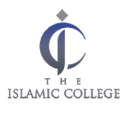HSC312 – Project
Course Overview
This module is aimed at providing an opportunity for students to practically apply research methods and techniques and to develop their interest in a subject of their own choice relating to Hawza studies in a greater depth. Completing the dissertation should give students the necessary skills and confidence to pursue further serious research projects and academic work. Students need to keep a self-reflective journal where they keep track of their progression as a researcher.
Module Info
- Syllabus
- Outcomes
- Strategy
- Material
sYLLABUS
- The module begins with a reminder of some of the principles learned in the Research Methodology module and instruction is given on areas such as completing a Literature Review. Students undertaking quantitative research projects such as surveys are given separate class time in which they are trained in this type of research method. The majority of the sessions are tutorials in which the tutor provides individual students with step by step guidance and support on their research projects.
Learning Outcomes
Knowledge
On completion of this module the successful student will be able to:
- Select and apply appropriate research methods to a subject of their own choice relating to Hawza studies (A4, B6)
- Plan and develop research, while critically analysing relevant views, issues and resources (A6, A7, A3, B1, B4)
Skills
This module will call for the successful student to:
- Originate research material by using library resources in order to identify source material, compile bibliographies, conduct research and enhance presentations (B6, C1, C5, C6, D1, D5, D6)
- Apply I.T skills for data capture, to identify source material and support research and presentations (C5, D5)
- Develop reflective learning by expressing considered thoughts and ideas (B2, B4, C4, C7, D1, D2)
Learning, Teaching and Assessment Strategy
Tutorial sessions will be used by the tutor to advise and assist individual students on developing their research outline and proposal, on reviewing the literature, collecting data, and eventually writing the research report. Individual student grades for the module will be determined solely by the final research report. Students will be assigned a supervisor with the appropriate expertise in the chosen subject area of the students’ Project who will provide them with the necessary guidance and supervision.
Assessment Modes
Formative assessment will be Module leader led seminars and workshops, students will discuss and presented topics. Module Leader will give guidance on appropriate literature and methodologies, the structure and organization of the material and agree a proposed timetable of work. Each student will be assigned and supported by a supervisor, with whom they will have regular tutorials. The supervisor will work with students following approval of the subject and title of the research proposal, ensuring formative feedback is received on the on a continuous basis. Students will also be asked to complete and submit a weekly reflective learning exercise based on the teaching and learning, student will be provided feedback regarding it and discuss the student’s progress and areas for future exploration. This is based on their formative learning process and students will be encouraged to complete these tasks to improve learning and satisfaction with the module.
Summative, graded assessment based entirely on the research report. Students are required to write a 1,000 word research proposal by the end of the first semester (Outcome 1), and an 8,000 word research report to be handed in at the end of the second semester. Research will be conducted under the supervision of the module leader (Outcomes 2, 3, 4, 5). Students need to keep a self-reflective journal where they keep track of their progression as a researcher. (Outcome 3, 4, 5).
Assessment Weighting
Proposal: 20%
Project: 80%
Journal: Pass/Fail
Learning Material
Core readings
- Bell, J. (2014). Doing Your Research Project: A guide for first-time researchers. McGraw-Hill Education (UK).
- Flesch, R. (1996). The Classic Guide to Better Writing : Step-by-Step Techniques and Exercises to Write Simply, Clearly and Correctly. US: Collins.
- Lipson, C., (2005). How to Write a BA thesis. A Practical Guide from Your First Ideas to Your. University of Chicago Press.


